Drake University will take center stage with this week's CNN Republican presidential debate
Running the show and the lead-up to a CNN political debate is a lot like conducting an orchestra.
Instead of skilled musicians performing woodwind or stringed instruments, there are expert camera operators and lighting crews. Instead of Carnegie Hall, it’s Drake University's Sheslow Auditorium.
And at 8 p.m. Wednesday, the show starts — a CNN Republican presidential primary debate held at the Des Moines university. The auditorium will be transformed into a TV-ready debate stage poised to host Florida Gov. Ron DeSantis and former United Nations Ambassador Nikki Haley just five days before the Iowa Caucuses.
Alexa Bennewitz, senior director of special events at CNN, made the comparison to an orchestra during an interview with the Des Moines Register. In this analogy, she is the conductor.
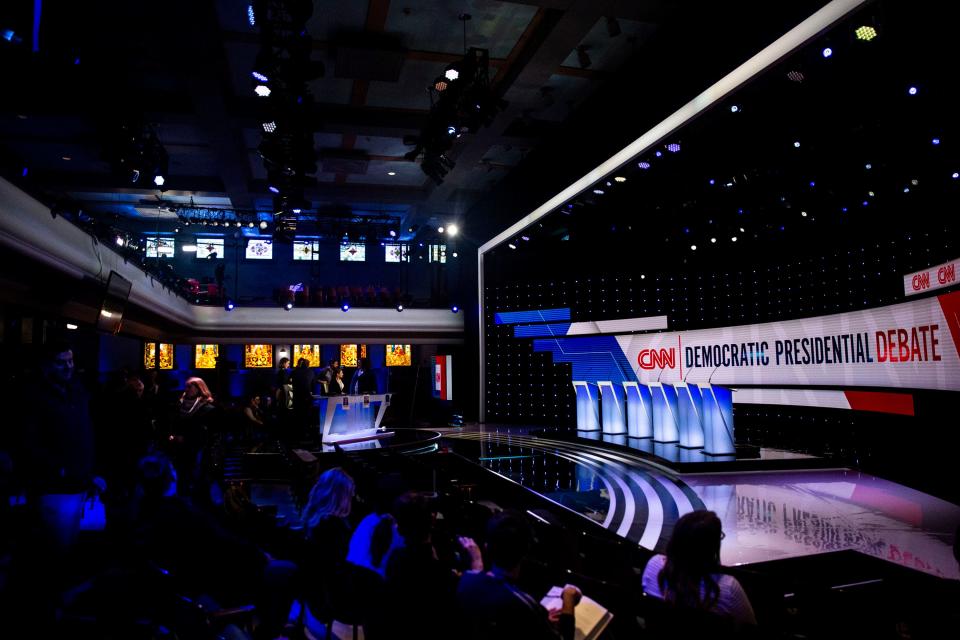
Day of, Bennewitz will be busy ensuring communication between various departments runs smoothly. If there is a lighting change, she'll need to make sure directors are aware. If there is a vendor who has trouble with its credentials, she’ll send someone to fix it.
“It's a little bit unclear because you never know exactly what your day is going to be when you wake up that morning,” she said. “But if you've done everything right, hopefully you're just running on schedule and making sure that everyone is keeping to that schedule.”
More: What to know about the Republican presidential primary debate in Iowa on January 10
Preparing for a debate: Rehearsals, a crew meal and ‘redundancy’
Candidates won’t be around for the many rehearsals that take place before the debate.
That means people of similar sizes will stand in their place as lighting is adjusted — campaigns provide candidates' heights, Bennewitz said. And there are audio checks for the candidates, the moderators and the audience.
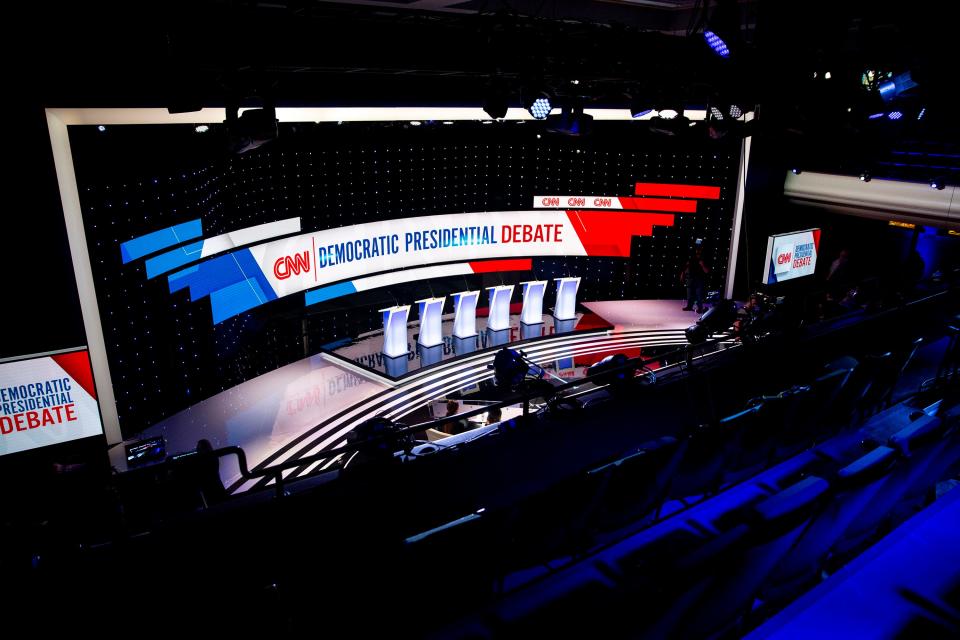
Backup plans are rehearsed, as well.
“Redundancy is kind of the name of the game,” Bennewitz said.
That translates into having several ways to transmit programming or having a spare camera, should there be issues.
“We're constantly trying to look at what's out there and how we can protect our events to make sure that the viewing public sees the very best event that's happening, and they're not distracted by a technical failure that might happen on an event,” Bennewitz said.
Sheslow Auditorium must undergo alterations to ready it for a debate, though Bennewitz intends to preserve, and highlight, the room’s beauty, such as bringing extra lighting to illuminate the room’s stained-glass windows of gold, teal and red. Other changes include the removal of 195 seats on the auditorium's floor so that a stage can be bigger and accommodate cameras.
The auditorium is just one of several buildings CNN will use for the debate — six will be involved across the university.
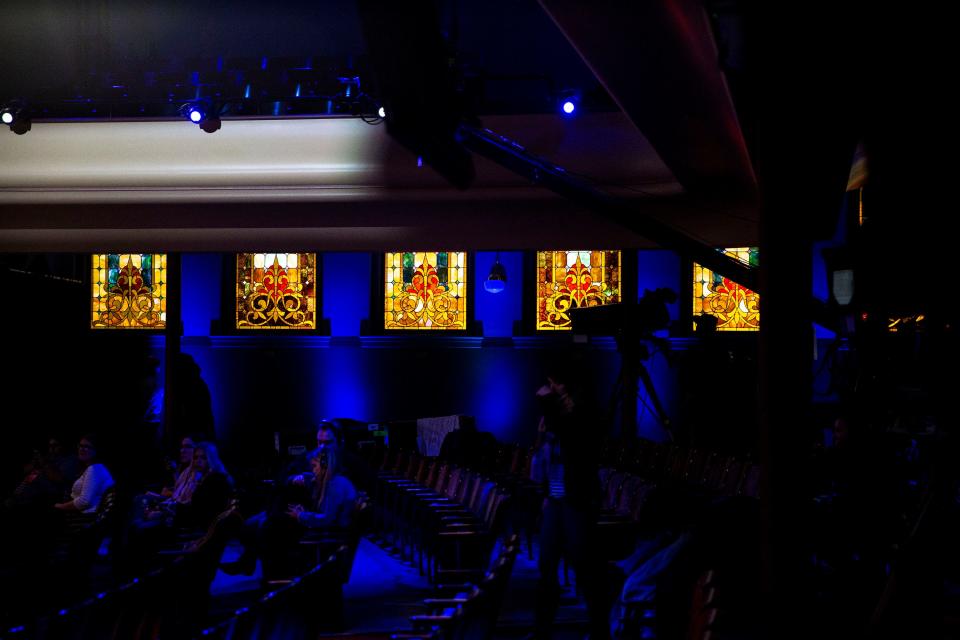
Security sweeps start early the day of. Water is set out for each of the camera crews. A crew photo is taken to commemorate the experience.
“It's great to look back at those photos and see how many familiar faces are still doing these events year after year,” Bennewitz said.
After the last rehearsal the day of the debate, the crew enjoys a meal. The catering companies they work with do their best to give them a taste of the region they’re in, Bennewitz said. (The Register let Bennewitz know about pickle wraps, but whether they will make the crews’ plates is unknown.)
Staff will work with the campaigns to get candidates on site with enough time to settle into their green rooms, get them equipped with microphones and offer any last-minute makeup touch-ups.
More: Everything you need to know about the Iowa caucuses ahead of the 2024 presidential race
The purpose of a CNN Republican presidential debate
Wednesday’s debate is different from others in part because the Iowa Caucuses are so close and because it’ll be the first two-person debate this election cycle, said Sam Feist, CNN’s Washington bureau chief. Former President Donald Trump qualified for the debate but plans to be at a Fox News town hall in Des Moines instead.
CNN takes debates “very seriously,” Feist said.
“The amount of care that we take in setting up the debate from both the production piece of it in the auditorium at Drake and the editorial piece of it — the topics, the questions, the tone, the way the debate is executed, it takes a lot of effort and care,” Feist said. “But we do that because it's really important. Debates are … important to the process. They're important to our democracy, and we're privileged to be a part of it, in this case, and thrilled to be coming back to Iowa to do another Iowa debate.”
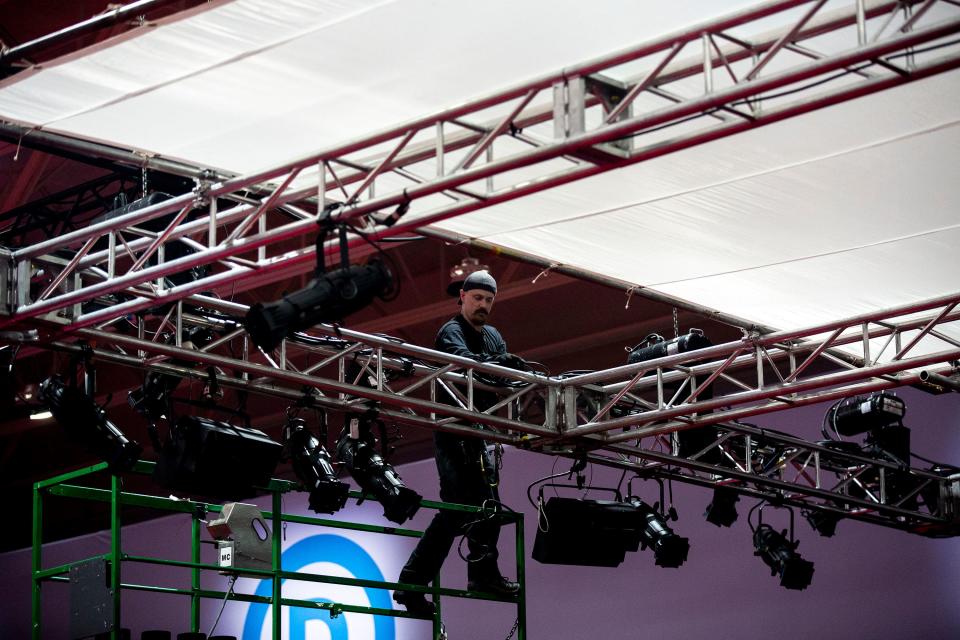
CNN anchors Jake Tapper and Dana Bash are moderators for the debate. Both are political journalists with “excellent instincts” on questions and topics to explore, Feist said. In addition, a team of producers, researchers and reporters will assist Tapper and Bash on questions and topics important to Iowa Republican caucusgoers, he said.
Mark Preston, vice president of political and special events programming, said debates are to be remembered by the answers candidates give, not the moderators’ questions. The debates aren’t about the moderators or about what “Democrats want to hear from the Republican candidates,” Preston said.
“This is a Republican presidential primary debate,” he said. “So, the questions are going to be focused on issues that are important for Republican voters.”
The debate's core purpose is for candidates to discuss their visions for the future, Preston said.
“But at the same time, having to stand next to their competitor they've been campaigning against for more than a year and to really show that in a time of crisis and a time of when you have to answer a hard question or make a hard decision, I think a debate provides that stage for viewers, for voters, to size up candidates that way,” he said.
What debates bring to Drake University students and Des Moines
Planning for the debate is a continuous process. The success of the CNN Democratic presidential debate in 2020 at Drake University ensured the news organization would want to return in 2024, Bennewitz said.
The university has hosted nationally televised debates for five presidential election cycles since 2007, according to a university news release.
It also hosted a fictional debate in season seven of the political comedy series “Veep.”
Select Drake University students get the opportunity to briefly work with CNN on the debate, taking on roles to help meet the needs of the production staff.
“They get to see themselves in those positions,” said Rachel Paine Caufield, co-chair of the political science department. “They get to see what goes into the production that they watch on TV, or that they would typically watch on TV. They get to see the dozens and dozens of people who are at work making that happen. So, politics becomes not just something you observe from afar, but it becomes something that's happening, and you're a part of it.”
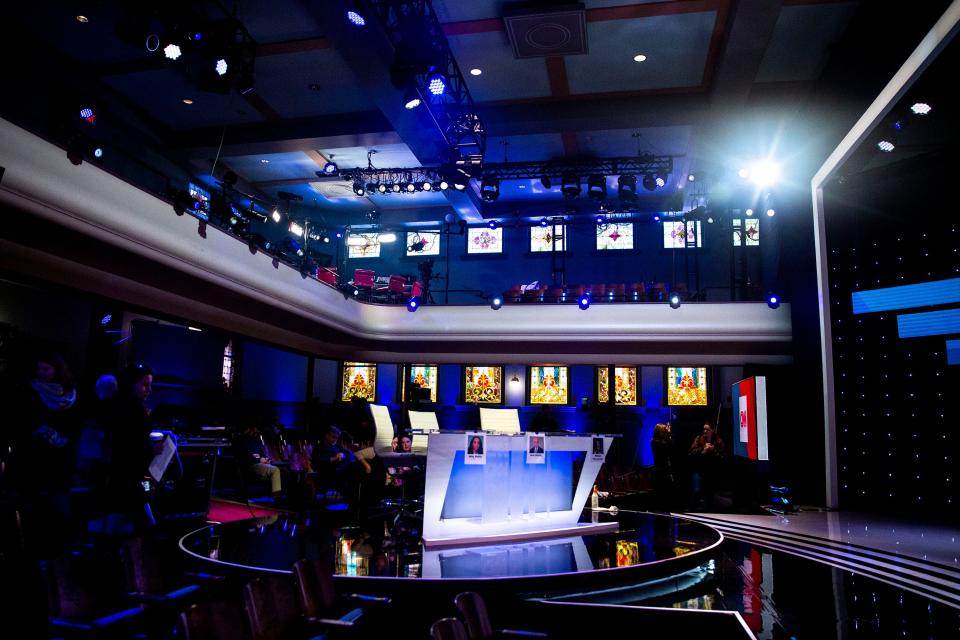
The benefit is not just for students, though.
“Drake has always prided itself on being the place where the community comes together to talk about the issues of the day, and the challenges that are facing the country,” said Paine Caufield, who is one of four Drake employees helping CNN. “I think this helps facilitate that role for the university in the Des Moines community and in the Iowa community.”
Paine Caufield sees her team’s job as being the “liaisons to the campus,” ready to figure out how to address CNN’s needs. That can be anything from making sure doors are unlocked at the right time to having the security team walk the path that candidates will take.
And yet: “It’s fun,” Paine Caufield said. “It’s so much fun.”
Paris Barraza covers entertainment, lifestyle and arts at the Des Moines Register. Reach her at PBarraza@registermedia.com or follow her on Twitter @ParisBarraza.
This article originally appeared on Des Moines Register: Go behind the scenes of CNN's Republican debate in Des Moines

